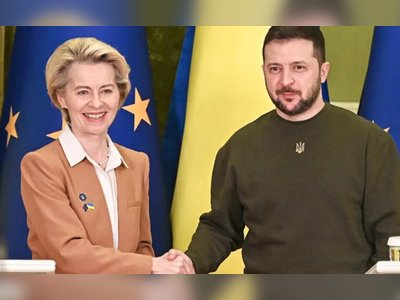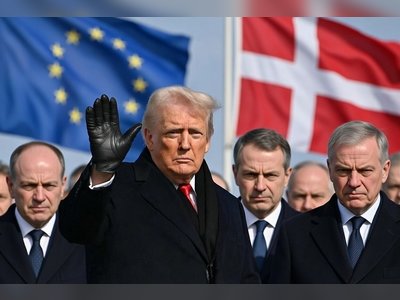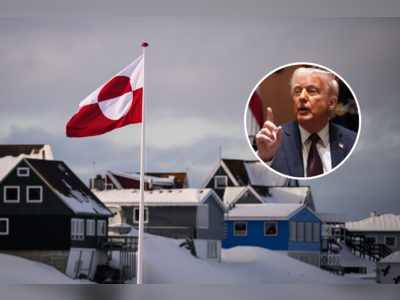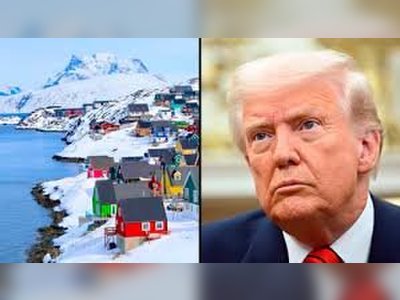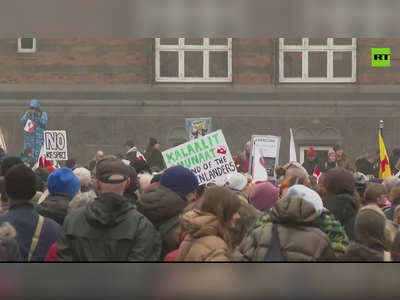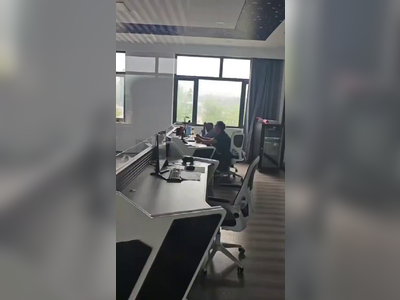The European Energy Paradox: Sanctions, Security, and Strategic Shortcomings
Amidst sanctions against Russia, the EU's complex dependency on Russian fuel through India reveals systemic policy challenges.
In the intricate theatre of global geopolitics, the European Union finds itself facing a paradox that questions the efficacy of its economic sanctions against Russia.
Despite its enduring commitment to penalizing Russia for its actions in Ukraine, the EU's indirect reliance on Russian energy has emerged as a significant point of contention.
A recent report unveils a convoluted supply chain wherein the EU, via India, continues to channel financial resources to Russia by importing refined fuel products, effectively dampening the intended impact of sanctions.
This intricate dance of energy trade reflects a broader dilemma confronting Europe: the urgent need to stabilize energy supplies while adhering to political commitments.
The accelerated disentanglement from Russian energy in the wake of the Ukraine conflict has led several EU member states to seek alternative sources, inadvertently finding India—a nation which procures and refines Russian crude oil—as a considerable partner.
This workaround not only highlights the gaps in Europe’s policy cohesiveness but also calls into question the real potency of its sanctions.
Energy security, understandably, stands as a paramount concern for European nations, many of which have experienced significant energy crises as a repercussion of severing ties with Russia.
The interim solution of importing from India appears as a pragmatic yet morally ambivalent measure driven by the exigencies of averting energy shortages.
Ethically, the continuation of economic engagements that inadvertently benefit the Russian economy is fraught with implications.
It risks establishing a norm where economic pragmatism overrules moral and strategic commitments, thus undermining the very principles these sanctions are meant to uphold.
As countries like Latvia and Lithuania express discontent over sanction loopholes, it is evident that maintaining economic stability holds a substantial weight in diplomatic deliberations.
The EU, therefore, faces a complex balancing act: impose sanctions that deter Russian aggression while sustaining its own economic and energy needs.
The current predicament underscores a critical insight—that sanctions should evolve beyond their role as punitive measures and be integrated as part of a broader geopolitical framework.
Diplomatic engagements, alongside carefully crafted sanctions, are imperative for fostering dialogue aimed at de-escalating tensions.
Moreover, the EU's quandary is illustrative of a larger global narrative, one where deep-seated economic dependencies increasingly challenge political ideologies.
It is perhaps a clarion call for Europe to reassess its strategies concerning both energy sovereignty and foreign policy.
As the EU navigates these turbulent waters, the echoes of Winston Churchill’s axiom, 'The price of greatness is responsibility,' resonate loudly.
A recalibration of policies that align with both ethical commitments and pragmatic needs may well define the bloc’s trajectory in its pursuit of a balanced and resilient future in a globally interconnected landscape.
Despite its enduring commitment to penalizing Russia for its actions in Ukraine, the EU's indirect reliance on Russian energy has emerged as a significant point of contention.
A recent report unveils a convoluted supply chain wherein the EU, via India, continues to channel financial resources to Russia by importing refined fuel products, effectively dampening the intended impact of sanctions.
This intricate dance of energy trade reflects a broader dilemma confronting Europe: the urgent need to stabilize energy supplies while adhering to political commitments.
The accelerated disentanglement from Russian energy in the wake of the Ukraine conflict has led several EU member states to seek alternative sources, inadvertently finding India—a nation which procures and refines Russian crude oil—as a considerable partner.
This workaround not only highlights the gaps in Europe’s policy cohesiveness but also calls into question the real potency of its sanctions.
Energy security, understandably, stands as a paramount concern for European nations, many of which have experienced significant energy crises as a repercussion of severing ties with Russia.
The interim solution of importing from India appears as a pragmatic yet morally ambivalent measure driven by the exigencies of averting energy shortages.
Ethically, the continuation of economic engagements that inadvertently benefit the Russian economy is fraught with implications.
It risks establishing a norm where economic pragmatism overrules moral and strategic commitments, thus undermining the very principles these sanctions are meant to uphold.
As countries like Latvia and Lithuania express discontent over sanction loopholes, it is evident that maintaining economic stability holds a substantial weight in diplomatic deliberations.
The EU, therefore, faces a complex balancing act: impose sanctions that deter Russian aggression while sustaining its own economic and energy needs.
The current predicament underscores a critical insight—that sanctions should evolve beyond their role as punitive measures and be integrated as part of a broader geopolitical framework.
Diplomatic engagements, alongside carefully crafted sanctions, are imperative for fostering dialogue aimed at de-escalating tensions.
Moreover, the EU's quandary is illustrative of a larger global narrative, one where deep-seated economic dependencies increasingly challenge political ideologies.
It is perhaps a clarion call for Europe to reassess its strategies concerning both energy sovereignty and foreign policy.
As the EU navigates these turbulent waters, the echoes of Winston Churchill’s axiom, 'The price of greatness is responsibility,' resonate loudly.
A recalibration of policies that align with both ethical commitments and pragmatic needs may well define the bloc’s trajectory in its pursuit of a balanced and resilient future in a globally interconnected landscape.
AI Disclaimer: An advanced artificial intelligence (AI) system generated the content of this page on its own. This innovative technology conducts extensive research from a variety of reliable sources, performs rigorous fact-checking and verification, cleans up and balances biased or manipulated content, and presents a minimal factual summary that is just enough yet essential for you to function as an informed and educated citizen. Please keep in mind, however, that this system is an evolving technology, and as a result, the article may contain accidental inaccuracies or errors. We urge you to help us improve our site by reporting any inaccuracies you find using the "Contact Us" link at the bottom of this page. Your helpful feedback helps us improve our system and deliver more precise content. When you find an article of interest here, please look for the full and extensive coverage of this topic in traditional news sources, as they are written by professional journalists that we try to support, not replace. We appreciate your understanding and assistance.




